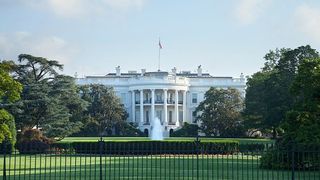RT Says It Has Registered as Foreign Agent

RT, formerly Russian Television, has registered as a foreign agent in the U.S.
Editor-in-chief Margarita Simonyan said the Justice Department had threatened legal action if RT did not register by today (Nov. 13).
That means RT stories must be conspicuously labeled as being disseminated by agents of a foreign government. It also means RT has to provide information on income and expenditures, supplemented every six months.
“Between legal action and registration [as a foreign agent], we have chosen the latter,” Simonyan said, according to the RT, which said Justice told it had to register back The Foreign Agents Registration Act (FARA) "requires persons acting as agents of foreign principals in a political or quasi-political capacity to make periodic public disclosure of their relationship with the foreign principal, as well as activities, receipts and disbursements in support of those activities."
RT was identified as a purveyor of Russian propaganda in a now-famous dossier on potential Russian influence on the election of President Donald Trump.
Related: CNN Poll: Majority Say Trump Campaign Coordinated with Russia
In a U.S. intelligence report on alleged Russian interference issued last January, RT was identified as an arm of Russia's state-run propaganda machine that favored President-elect Donald Trump and provided negative coverage of Hillary Clinton.
It has since been branded as such by various legislators. RT has been taking heat from both sides of the political aisle, but the Committee to Protect Journalists did not like the precedent being set.
Broadcasting & Cable Newsletter
The smarter way to stay on top of broadcasting and cable industry. Sign up below
"Compelling RT to register under FARA is a bad idea," said CPJ North America Program Coordinator Alexandra Ellerbeck.
"This is a shift in how the law has been applied in recent decades, so we have little information about how its reporting requirements might affect individual journalists," Ellerbeck said. "We're uncomfortable with governments deciding what constitutes journalism or propaganda."
FARA was passed as a reaction to Nazis and other propagandists, but morphed in 1966 to targeting lobbyists acting as agents for foreign governments.
Contributing editor John Eggerton has been an editor and/or writer on media regulation, legislation and policy for over four decades, including covering the FCC, FTC, Congress, the major media trade associations, and the federal courts. In addition to Multichannel News and Broadcasting + Cable, his work has appeared in Radio World, TV Technology, TV Fax, This Week in Consumer Electronics, Variety and the Encyclopedia Britannica.

